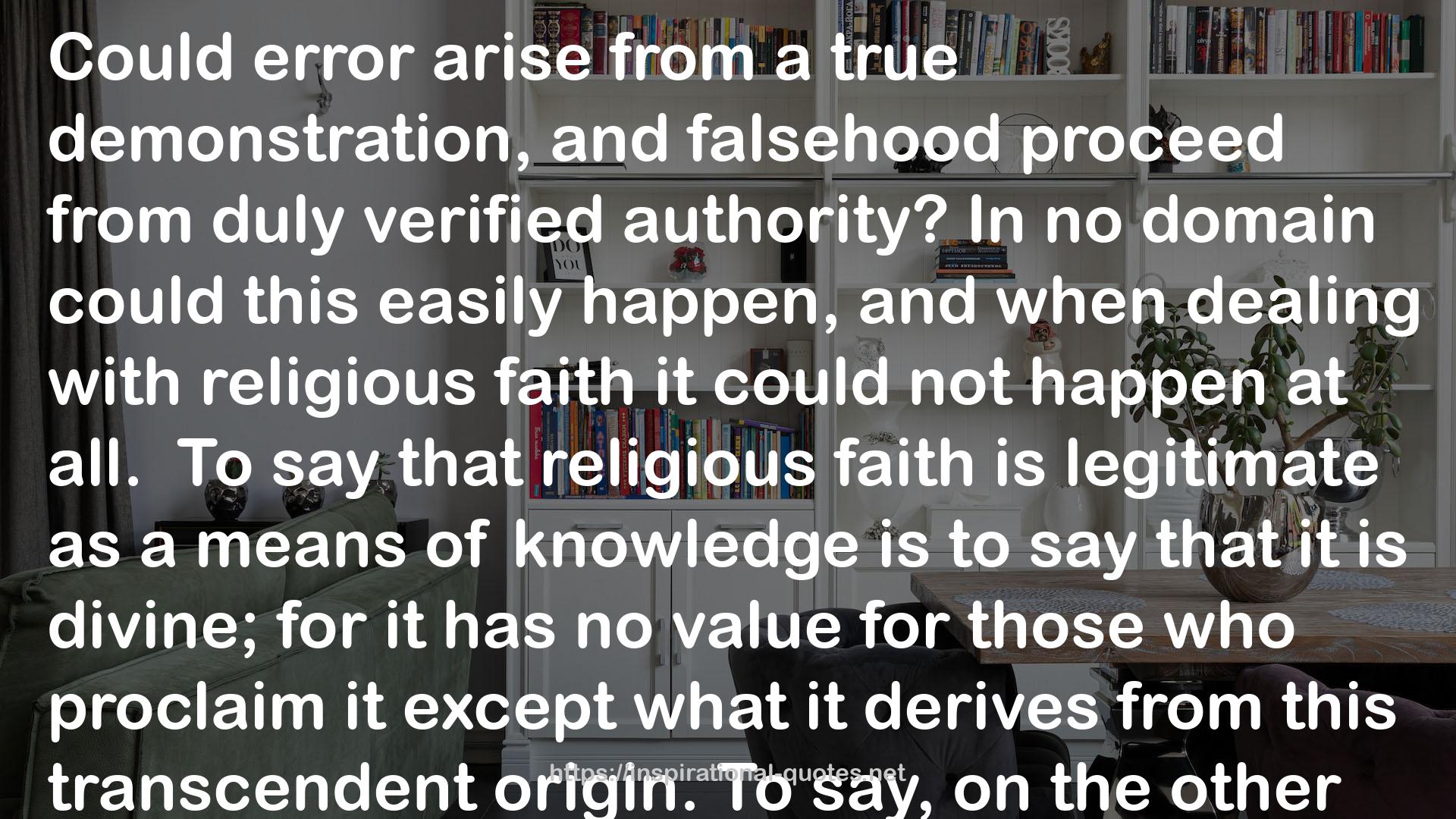" Could error arise from a true demonstration, and falsehood proceed from duly verified authority? In no domain could this easily happen, and when dealing with religious faith it could not happen at all.
To say that religious faith is legitimate as a means of knowledge is to say that it is divine; for it has no value for those who proclaim it except what it derives from this transcendent origin.
To say, on the other hand, that the use of the reason is legitimate and necessary, is to take the same thing as understood; for reason has no authority except as far as it represents the eternal order, that is to say, God once more. How could God be divided against Himself, teaching by revelation what He contradicts by the intelligence, and setting up in opposition to each other as two manifestly hostile things on the one side the Gospel, on the other the book of nature and of humanity, when these volumes, which we want to distinguish, are really the three volumes of one work?
If the Gospel be properly understood—the living Gospel, I mean, such as the Church offers it—it cannot contradict nature, nor man, nor, consequently, that science which expresses them both.
If science is in its own domain and operates according to its law, it cannot contradict the Gospel. "
― Antonin Sertillanges , The Church (Classic Reprint)
